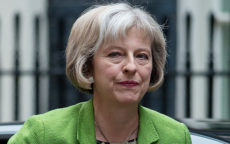
Members of the House of Lords have strongly criticised the Government’s plans to remove the 50% cap on religious selection in new English ‘faith’ schools, as part of a parliamentary debate about the Government’s new grammar schools proposals. Peers raised serious concerns about the Government’s new plans, first announced by the Prime Minister in September at the behest of the Catholic Church.
The first peer to speak on the subject was Lord Cashman, a member of the All-Party Parliamentary Humanist Group, who warned that a new generation of schools ‘where pupils can be selected on the basis of their religion… would represent a significant step back in the efforts to make our education systems fairer, more inclusive, and more integrated.’ His concerns were echoed by Lord Storey, the Liberal Democrat Party spokesperson for education in the House of Lords, who said that ‘the abolition of the 50% cap in our faith schools will mean that even more of our children will be separated and segregated by their religion’. He argued instead for ‘an open education system that does not segregate any pupil because of their ability or their faith—a system in which no child is left behind’.
Lord Storey’s counterpart in the Labour Party, Lord Watson, also raised substantial objections to the Government’s ‘lesser-highlighted’ proposals for unlimited religious selection. He cautioned that the proposals amounted to ‘potentially playing with fire and should be dropped immediately.’ He also cited an increased need in the UK population for unity over division, alluding to reports of a recent spike of hate crimes targeting immigrants and non-white Britons, and counselled against engendering further divisions in society through fully segregated schools.
Lord Watson went on to say that,
‘[T]he Government want to facilitate a policy that will harden the divisions between children by ensuring that those not of a certain faith will be shut off from their neighbours and friends because they are to be prevented from attending a local school that their parents want them to attend. So much for choice. The Government’s plan is to allow groups of children to be segregated and prevented from mixing while they learn for life, conscious only of each other’s differences and not what binds them together as citizens. This move would have been a negative one at the best of times, and, as I have already alluded to, we are very far away from the best of times.
‘Walls are dismantled by people coming together, not by keeping them apart. Further selection on the grounds of faith will lead to more pupils being discriminated against, primarily based on their parents’ faith. The Government claim that the cap should be scrapped because it has had little impact on improving integration in minority religious schools, but it has been in place only since 2011 and is certainly not doing any harm. If faith schools are not yet successful in promoting diversity with 50% of pupils of that faith, why on earth would they be more likely to do so with 100%?’
Like his fellow peers, he urged the Government to ‘give due weight’ to years of overwhelming academic evidence, as well as the Government’s own data, all of which suggest that religious selection by ‘faith’ schools fosters racial selection and disparities in attainment between the children of well-off and poorer families.
Elsewhere, Lord Cashman warned that the proposed changes to the 50% cap could be effected without Parliamentary scrutiny, due to the fact that they are part of funding agreements and not existing legislation. He called on Government to give assurances that Parliament will be thoroughly consulted.
Outside of Parliament, the former Minister of State for Schools, Lord Knight, has warned in a comment piece for the TES that ‘Relaxing faith schools admissions risks the divisive ghettoisation of education.’
Notes
For further comment or information, please contact BHA Communications Manager Liam Whitton at liam@humanists.uk or on 020 7324 3060.
More on the BHA’s policy on ‘faith’ schools: https://humanists.uk/campaigns/schools-and-education/faith-schools/
The British Humanist Association is the national charity working on behalf of non-religious people who seek to live ethical and fulfilling lives on the basis of reason and humanity. It promotes a secular state and equal treatment in law and policy of everyone, regardless of religion or belief.
Take action against the Government’s plans for 100% religious selection in English schools. Write to your MP today at https://humanists.uk/100selection.
